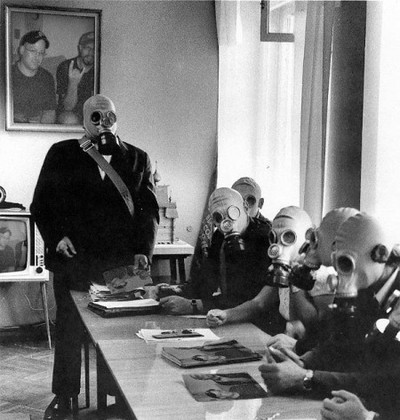I’ve finally decided to do something that several people have been after me to do since I started this blog nearly four years ago.
No, not “Quit.”
The time has come, however, for me to do something different, and it will affect this blog, at least for a while. As the Mall Diva would say, “Here’s the dealio:”
I know I’m a good writer. I don’t type that in a boastful way because I know there is very little I’ve had to do with that fact. It was something imparted to me when I was born; to brag about it would be like some 6′ 6″ guy taking pride in being tall. My grandfather had the gift, my mother, myself. I’ve seen it in my daughters as well. Some people can sing, some people can paint. I can’t do either, but sometimes a song or something I see paints a picture in my mind and it comes out in words that even make me wonder where they came from.
So. I know I’m good. The question that I’ve put off asking myself, for fear that I’ll then have to try and find out the answer, is “How good can I be if I really applied myself?” Good comes naturally, but great takes something else again, and if I don’t have what it takes to be great, can I live with it? In a way, by not trying, I was indeed saying that I could live with it.
I mentioned fear in the last paragraph. I’ve been thinking about fear a lot lately. In the movie class with the boys earlier this month we watched “The Ghost and the Darkness” about the man-eating lions of Tsavo, Kenya. After the movie we talked about courage not being the absence of fear, but the mastery of fear, of acknowledging but ultimately ignoring what would seek to hold you back in order to accomplish something great. Sometimes, however — as I commented on a friend’s blog recently — fear isn’t a lion roaring in the dark; sometimes it is the sibilant hiss of self-doubt from the shadows of your own heart. Can I tell you what one of my deeper fears is? I am afraid that in my heart I am lazy, that I don’t have the will, or intestinal fortitude, to start something and stick with it, and that I’d find it all too easy to take it easy — physically, mentally, spiritually. I sense the coils of slack waiting in my heart, waiting for me to cut it for myself.
I felt like that in the months leading up to February, 2005 when I finally launched this blog. I didn’t know what I’d write about, or how often I’d write (or could write) or for how long I would do it. I set a couple of objectives for myself. I would try to post at least once every weekday, and I would do it for at least six months and see where I was at. Blogging would be a test for me to see if I had the discipline to commit to the activity and the chops to make it interesting (both for myself and whatever readers came along). I have been somewhat amazed at how relatively easy it has been, and I’ve come to enjoy the challenge of waking up every morning without knowing what I was going to write about that night. More than that, I’ve truly enjoyed and appreciated the community of bloggers that I’ve come to know (though many I’ve never actually met in person). I’ve found a rhythm and a comfort zone in blogging, and that in its own way is kind of scary.
Certain thoughts have been in the back of my mind for some time, and I let them come to the forefront while I was on vacation the last couple of weeks, and I’ve made a decision. Blogging has been a great exercise … almost like calisthenics. The thing with calisthenics is that you can develop your muscles but at some point you’re going to want to do something with them. As the Anthony Trollope quote in my header this week says, “Three hours a day will produce as much as a man ought to write.” I now know I can put two to three hours a day into writing, because I’ve been doing this and now…I need to break from the familiar and comfortable and see what else I can write.
As when I started this blog, I have no idea what I’m going to write about, or what form it will take. I think I’d like to try a novel, but I don’t have a vision for a story yet. It may be short stories at first, as the next step in my process. What I do know is that I’m going to take those two to three hours a night to work it out, and that means not writing as often here.
I’m leaving the lights on, however. I’d like to post snippets from whatever I’m working on or finished pieces as they come to me from time to time, and there may be current events that I just cannot keep from commenting upon, especially if I can do so quickly. If so they’ll be cross-posted on True North as well. And I definitely plan to keep reading (and commenting on) other blogs. I will not be a recluse. In addition the Mall Diva, Tiger Lilly and even the Reverend Mother are by no means finished. My invitation to regular readers is to sign up for the RSS feed in the right hand sidebar so you will automatically be tipped off when something new is posted.
It’s been surprisingly hard to change direction even though so little is really at stake. While I was on vacation, however, I started re-reading Mark Helprin’s exquisite, achingly beautiful collection of short stories compiled in The Pacific. Sometimes it felt as if I could barely breathe as I read, so perfect is the prose and so great my desire to try and create something similar, even as insurmountable as that may be. I also came across a reviewer who both shared my appreciation for the book and also set a target for me to pursue.
I’m not saying that Helprin’s stories always have happy endings. But they are filled with purposeful action, sharp with clear intent. The Pacific features women that are really beautiful, battles that are actually worth fighting, and melodies that can break your heart. Helprin’s prose shines because his genius has a moral compass, and it comes as a relief to read stories that do not end in existential anticlimax.
In this moment, my purpose is clear. I’m going for it.













